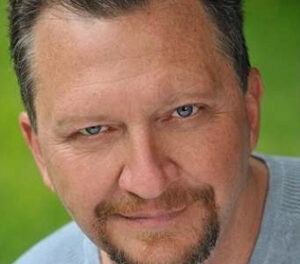The Greensboro Opera Company brought a high dose of shenanigans to the stage Friday night with The Barber of Seville (subtitled The Useless Precaution). The work was written by Italian Gioachino Rossini (1792-1868) and first performed in Rome in 1816. The Italian libretto was written by Cesare Sterbini (1784-1831) and based on a play by Pierre Beaumarchais (1732-99). The premiere of the work was a complete disaster, but the comic opera has become one of the 10 most performed operas in the world. The performance was marked by superb singing, awesome action, and an emphasis on the comic aspect of the “opera buffa.”
The overture bustles with energy and gaiety, seemingly perfect for the action that is to follow. However, the overture was actually written for another opera several years earlier; nonetheless, it fits the work perfectly.
The opening scene takes place in Seville, Spain in the 1700s. Count Almaviva (disguised as Lindoro, a poor student) arrives at Doctor Bartolo’s house to serenade Dr. B’s ward, Rosina, who is kept confined to the house. Fiorello (Almaviva’s servant and strongly sung by baritone Ryan Hill) has gathered musicians at Dr. B’s house to help the Count serenade Rosina, and after some antics, Almaviva, convincingly portrayed by Andrew Owens, sings to her. Throughout the evening, Owens displayed a lovely lyric tenor voice, well-suited for the would-be-lover.
But Rosina does not appear. After more antics in trying to dismiss the musicians, the barber Figaro appears. He proclaims he is the man-about-town, not only giving haircuts, but also delivering messages between lovers. David Pershall was a terrific Figaro, with a hearty voice and a persona to match, taking possession of the stage. He tells Almaviva that the good doctor intends to marry Rosina, thereby getting the girl and an ample inheritance. The Count enlists the barber to help him in his love pursuit.
Almaviva sings another attractive aria, this time accompanied by on-stage guitar (unerringly played by Kevin Dollar). But the Count begins with the “wrong” number: “Una furtiva lagrima” by Donizetti – never miss a chance for some comedy! Rosina begins to respond when she is suddenly pulled back into the house.
Figaro suggests that Almaviva return later posing as a drunken soldier in order to gain entrance to Bartolo’s house. The scene ends with one of those magnificent duets at which Rossini so excelled, with the Count and the barber expressing delight over two different things: for the Count, the opportunity for love, for Figaro, the opportunity to make money.
Rosina, sung by Cecelia Hall, has indeed heard the Count’s voice and is smitten. Her aria was stunningly presented. Hall sang with a beautiful, rich lyric sound, and she was able to negotiate the many fast passages with ease and artistry. Bartolo, a tottering old man, is over-the-top humorously sung by Donald Hartmann. His every aria and gesture confirms that he is a bumbling letch of the first-order.
The doctor has brought a music teacher, the unscrupulous Don Basilio, to help him in his plans to marry Rosina. Tyler Simpson as Basilio, displayed a strong voice, and it is clear that Basilio would do almost anything if the monetary reward were enough.
Almaviva arrives as a drunk soldier, and the rest of the act is given over to mayhem, concluding in soldiers (led by sergeant Jacob Kato) arriving to join everyone on stage. The entire ensemble is stunned by the turn of events, leading to another Rossini trademark, the ensemble Finale in which each character displays her/his emotion.
The second act allows plenty of tomfoolery: Almaviva appears in disguise once again, this time as a music teacher for Rosina – Basilio is ill, he says. Figaro arrives, Basilio arrives, and the servant Berta (convincingly sung by Stephanie Foley Davis) sings an aria about every old fool wanting to get married. Lots of duets and trios and madcap action ensues. A storm scene takes place (of course), and the Notary (Christian Blackburn) officiates the marriage of Almaviva and Rosina during Bartolo’s absence. The doctor returns and accepts the situation, and everyone celebrates in general rejoicing.
The GOC’s production of this perennial crowd-pleaser certainly pushed the comic aspect to the front, using every opportunity for a quick laugh, all with good effect. As always, GOC artistic and stage director David Holley‘s supervision made good use of the impressive sets, borrowed from Utah Opera. His efficient direction provided good motion, and singers were where they always needed to be for the action at hand.
Conductor Joel Revzen, who also played harpsichord in the recitatives, sympathetically led the fine orchestra, attentive to the singers’ need for breath. Lighting, designed by Jeff Neubauer was effective (the house lights even flashed during the storm scene). James Bumgardner solidly prepared the chorus (musicians and soldiers).
The leads in this production were excellent across the board. The action was non-stop and humor ever present – many out-loud laughs could be heard throughout the evening. This was a wonderful opportunity to hear one of the greatest comic operas in the literature.
GSO repeats the performance on Sunday, January 14 in the UNC-G Auditorium. See our sidebar for details.











